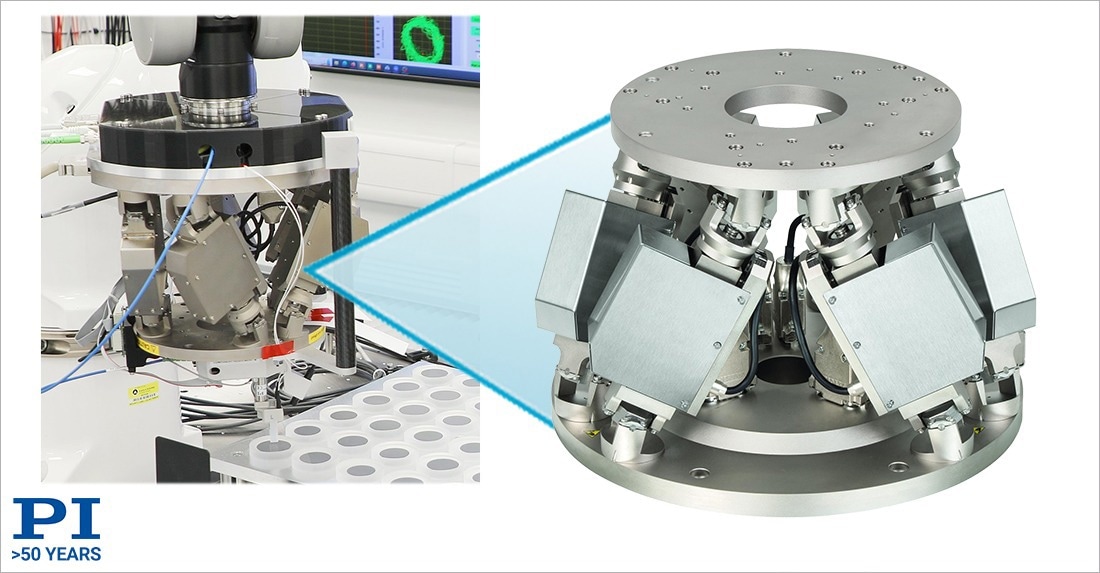6-axis nanopositioning system assembly provides the ultra high precision required to mount and align optical components to be launched into space, new from PI.

Image Credit: PI (Physik Instrumente) LP
Auburn, MA – PI, a global leader in nanopositioning and motion control, continues to contribute to space exploration advancement as PI 6-DOF hexapods deliver the precision required by the Laser Interferometer Space Antenna (LISA) project. LISA is a space-based gravitational wave observatory, that will detect cosmic undulations from black holes with much greater resolution than the much smaller earth-bound systems are capable of. The interferometer, based on three spacecraft, 2.5 million kilometers apart, is constructed of the highest accuracy components, including optical components precisely aligned with the help of the hexapod.
ESA, NASA, and PI Hexapods – Working Together, Again
During the assembly of the ultra-precision optical components at the heart of the LISA project expected to launch in 2035, UKATC engineers employ precise control in 6 degrees of freedom with PI’s compact H-824 hexapod (Stewart Platform). Hexapods, with their programmable center of rotation (pivot point), are the gold standard when it comes to precise multi-axis alignment tasks, from nanometer sized structures in silicon photonics / fiber optics to big mirrors and reflectors in astronomy. Based on 4 decades of experience, PI hexapods are available in many different sizes and configurations. They are supported by a host of software tools, alignment routines, and accessories. The great flexibility allows the hexapod user to adapt their 6-axis motion system to any alignment application quickly without retooling.
H-824 Features
- Compact: 281mm base, 190mm height
- 45x45x25mm XYZ travel
- 15x15x25° rotary travel
- Up to 10kg load
- Up to 25mm/sec max. velocity
Hexapod Controller / Motion Software
PI’s hexapod controllers and hexapod software are based on decades of experience with parallel kinematic motion systems. PI’s free hexapod software simulates the limits of workspace and load capacity, thereby ensuring the hexapod you choose will handle the loads, forces, and torques in your application.
More information on PI’s H-824 hexapod alignment system
Read more about the LISA Project
Industries Served
Aerospace, astronomy, metrology, optics, photonics, semiconductors